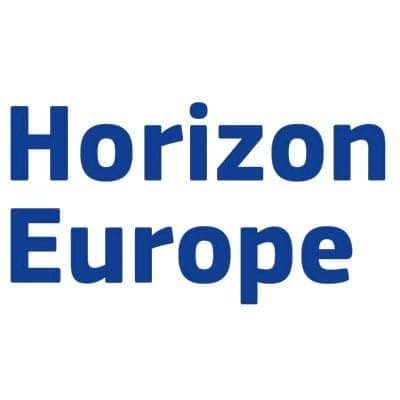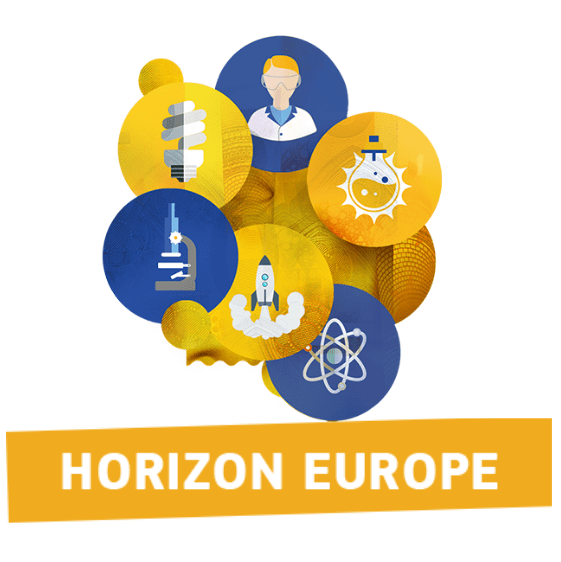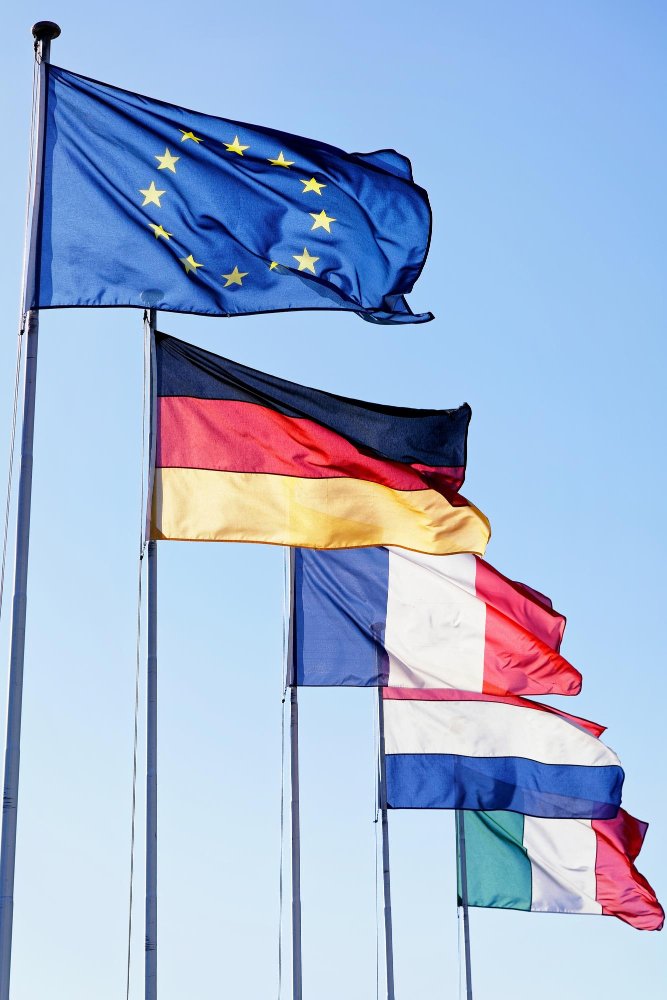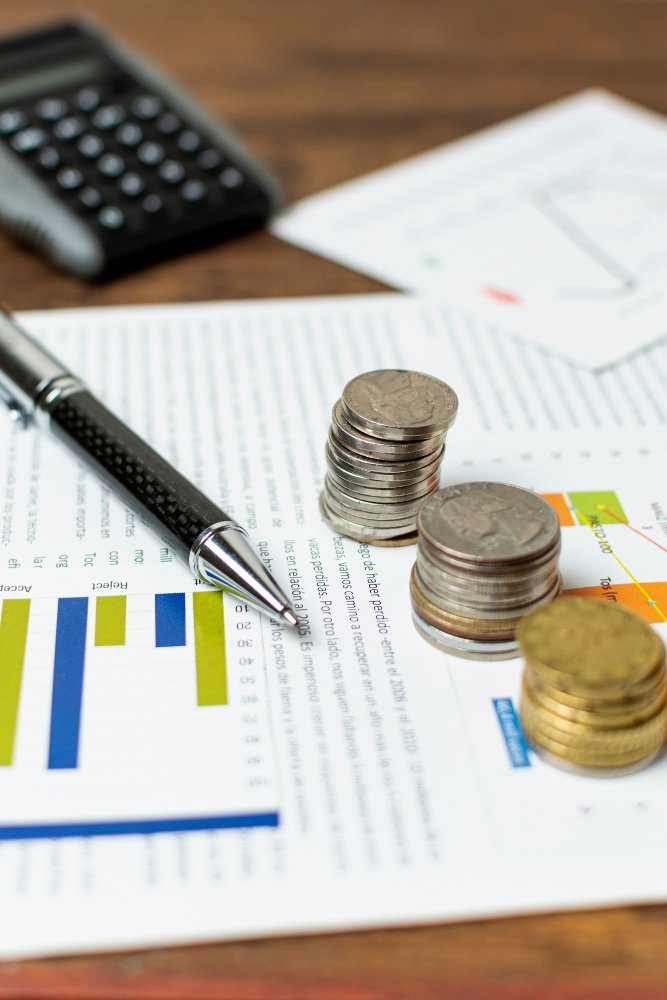Horizon Europe Programme
European funding for research and innovation
- Welcome
- EU funding program
- Horizon Europe
Summary
Introduction to Horizon Europe
Horizon Europe is the European Union's framework programme for research and innovation, representing the most ambitious investment ever made by the EU in this field. The successor to Horizon 2020, this programme aims to strengthen the Union's scientific and technological foundations, boost its innovation capacity, competitiveness, and job creation, while addressing citizens' priorities and supporting European policies.

Horizon Europe occupies a central and strategic position within the European funding ecosystem. With a total budget of €95.5 billion for the period 2021–2027 (including €5.4 billion from NextGenerationEU), it is the largest research and innovation funding program in the world. Unlike other, more specific instruments, Horizon Europe covers the entire innovation spectrum, from fundamental research to market launch.
Horizon Europe's strategic objectives are fully aligned with the European vision of a more sustainable, digital, and resilient society. The program aims to:
- Strengthening the EU's scientific and technological bases
- Increasing Europe's innovation capacity and competitiveness
- Delivering on the EU's strategic political priorities
- Contribute to addressing global challenges, including the Sustainable Development Goals
- Support the creation and dissemination of excellent knowledge
Horizon Europe is structured around three main pillars and a cross-section:
- Scientific excellence : support excellent fundamental research
- Global issues and European industrial competitiveness : addressing major societal challenges and strengthening technological and industrial capacities
- More innovative Europe : stimulate disruptive innovation that creates markets
- Broadening participation and strengthening the European Research Area : maximizing the EU's R&I potential
Innovation to meet European and global challenges
Specific objectives and priorities
Horizon Europe aligns research and innovation with societal challenges and EU policy priorities, while fostering European competitiveness. This chapter details the program's multiple dimensions to help you ideally position your project.

Main thematic axes
Horizon Europe is structured around six major thematic clusters within the second pillar:
Cluster 1: Health
- Lifelong health and well-being
- Environmental and social determinants of health
- Rare and non-communicable diseases
- Infectious diseases and global health threats
- Tools, technologies and digital solutions for health
- Sustainable and resilient healthcare systems
Cluster 2: Culture, creativity and inclusive society
- Democracy and governance
- Cultural heritage and cultural and creative industries
- Social and economic transformations
Cluster 3: Civil security for society
- Disaster-Resilient Societies
- Protection and security
- Cybersecurity and the fight against crime
Cluster 4: Digital, industry and space
- Manufacturing technologies
- Key digital technologies
- Advanced materials and related technologies
- Artificial intelligence and robotics
- Circular and low-carbon industries
- Space, including Earth observation
Cluster 5: Climate, energy and mobility
- Climate science and solutions
- Sustainable and clean energy supply
- Energy systems, networks and storage
- Energy efficiency of buildings and industry
- Sustainable communities and cities
- Smart and clean mobility
Cluster 6: Food, bioeconomy, natural resources, agriculture and environment
- Environmental observation
- Agriculture, forestry and rural areas
- Sustainable food systems
- Circular bioeconomy and bioindustries
- Biodiversity and natural resources
Sectoral priorities
Horizon Europe's 'Climate, Energy and Mobility' cluster funds upstream research and innovation, while programmes such as LIFE and theInnovation Fund respectively support environmental demonstration projects and the industrial deployment of low-carbon technologies.
Beyond the thematic clusters, Horizon Europe has defined specific missions to maximize the impact of research and innovation:
- Adaptation to climate change : support at least 150 European regions to become climate resilient by 2030
- Cancer : improve the lives of more than 3 million people by 2030 through prevention, treatment and cure
- Oceans, seas, coastal and inland waters : restore the health of our oceans and waters by 2030
- Smart and climate-neutral cities : supporting 100 European cities in their climate transition by 2030
- Soil health and nutrition : ensure that 75% of soils are healthy by 2030
Horizon Europe also focuses on ten institutionalized European partnerships in strategic areas such as global health, clean hydrogen, green aviation, innovative medicines, and high-performance computing.
European strategic objectives supported
Horizon Europe is part of the major European political priorities:
- The European Green Deal
- A Europe fit for the digital age
- An economy at the service of people
- A stronger Europe on the international stage
- Promoting the European way of life
- A new impetus for European democracy
The program particularly supports ecological and digital transitions, with at least 35% of funding dedicated to climate objectives.
Expected impact at European level
Horizon Europe projects must demonstrate their potential to generate significant impacts in several dimensions:
- Scientific impact : creation and dissemination of high-quality knowledge and innovations
- Technological/economic impact : strengthening industrial competitiveness, creating jobs and growth
- Societal impact : response to EU political priorities and global challenges
- Structural impact : strengthening the European Research Area and the innovation capacities of the participating countries
The program uses an impact-driven approach, with a clearly defined “intervention logic” linking activities to expected short-, medium-, and long-term results.

Types of projects funded
Horizon Europe offers a variety of financing instruments tailored to different types of projects and stages of innovation:
- Research and innovation actions (RIA) :
- Projects aimed at establishing new knowledge or exploring the feasibility of a technology, product, process or service
- Financing of eligible costs at 100%
- Typical duration: 3-4 years
- Minimum consortium: 3 independent entities from 3 different member or associate countries
- Innovation Actions (IA) :
- Projects directly aimed at producing plans, arrangements or designs for new, modified or improved products, processes or services
- May include large-scale prototyping, testing, demonstration and product validation
- Funding at 70% of eligible costs (100% for non-profit entities)
- Typical duration: 2-3 years
- Minimum consortium: identical to RIAs
- Coordination and Support Actions (CSA) :
- Accompanying measures such as standardization, dissemination, awareness raising, networking, support services
- Financing of eligible costs at 100%
- Typical duration: 1-3 years
- Minimum consortium: 1 entity from a member or associate country
- Innovation and Market Deployment Actions (IMDA) :
- New in Horizon Europe, these actions focus on near-market activities
- Integrate the deployment of innovative solutions and their first commercial application
- European Innovation Council (EIC) :
- Pathfinder : advanced research for disruptive technologies (similar to RIA)
- Transition : maturation and validation of promising technologies
- Accelerator : blended finance (grants and equity investments) for the development and deployment of high-risk innovations
- Marie Skłodowska-Curie Shares (MSCA) :
- Mobility and training of researchers at all stages of their career
- Different schemes: doctoral networks, individual scholarships, staff exchanges, etc.
- European Research Council (ERC) :
- Individual excellence funding for researchers at different career stages
- Starting Grants, Consolidator Grants, Advanced Grants, Synergy Grants
For SMEs and startups developing disruptive technologies and seeking more targeted funding, theEIC Accelerator constitutes a specific component of Horizon Europe particularly adapted to their needs.
Concrete examples of projects already funded
Here are some illustrative examples of projects that have received funding under Horizon Europe and its predecessor:
- Development of an innovative mRNA vaccine against infectious diseases (RIA, Health Cluster)
- Creation of a collaborative platform for sustainable urban mobility integrating autonomous vehicles and sharing systems (AI, Climate, Energy and Mobility Cluster)
- Establishment of a European network of excellence on advanced materials for energy storage (CSA, Digital Cluster, industry and space)
- Development and commercialization of an early cancer detection technology based on artificial intelligence (EIC Accelerator)
- Interdisciplinary training program for 15 doctoral researchers on quantum technologies (MSCA Doctoral Network)
- Fundamental research on new catalysts for the production of green hydrogen (ERC Advanced Grant)
Supported technological innovations
Horizon Europe particularly supports projects which:
- Develop low TRL (Technology Readiness Level) technologies to market
- Integrate multidisciplinary and intersectoral approaches
- Promote openness and international collaboration
- Contribute to the EU's digital and green priorities
- Present a strong potential for disruptive innovation
Priority sectors
Although Horizon Europe covers all scientific and technological fields, certain sectors benefit from particular attention:
- Advanced medical technologies and digital health
- Artificial intelligence, robotics and quantum technologies
- Clean tech and low-carbon technologies
- Nature-based solutions and biodiversity
- Cybersecurity and Trusted Technologies
- Circular economy and bioeconomy
- Space technologies and satellite applications
- Industry 4.0 and advanced manufacturing
- Smart and connected mobility
- Inclusive and creative digital society

Support by MarketKaps

Specific expertise
Our in-depth expertise in the Horizon Europe program and its predecessors is the result of many years of successful support for public and private organizations, SMEs and large corporations, as well as academic institutions. Our team includes evaluators from the European Commission, thematic experts in the program's main clusters, and specialists in the various funding instruments.
Our experts have a thorough understanding of Horizon Europe's specific features, its evaluation criteria, and the requirements of each type of action. This expertise allows us to guide you precisely through the program's complexity, from identifying relevant calls to managing the administrative aspects of the funded project.


Personalized support methodology
Our support approach for Horizon Europe follows a proven 7-step methodology:
- Strategic analysis : In-depth study of your innovation and R&D strategy to identify the most relevant financing opportunities
- Call monitoring and identification : Continuous monitoring of work programs and personalized alerts on calls adapted to your profile
- Optimal positioning : Analysis of targeted calls, competitive benchmarking and strategic positioning of your proposal
- Constitution of the consortium : Identification and mobilization of complementary European partners to create a consortium of excellence
- Project structuring : Definition of technical architecture, work packages, budget and impact model
- Drafting the proposal : Development of a complete, scientifically rigorous file perfectly aligned with the evaluation criteria
- Preparation for the grant preparation phase : Anticipation of administrative and contractual requirements for rapid implementation

Services offered
Marketkaps offers complete or modular support according to your needs:
- Eligibility diagnosis and analysis of suitability with Horizon Europe calls
- Strategic monitoring and identification of financing opportunities
- Research and mobilization of leading European partners
- Organization of consortium meetings and facilitation of exchanges
- Technical and scientific structuring of the project
- Definition of methodology and work plan
- Development of the impact strategy and exploitation of results
- Financial planning and budget optimization
- Complete or partial drafting of the application file
- Critical review and qualitative improvement of proposals
- Preparation for interactions with the Commission during the evaluation phase
- Administrative assistance for contractualization
- Support for project management and reporting

Eligibility conditions
Eligibility criteria for organizations
To be eligible for the Horizon Europe program, candidates must meet the following conditions:
- Legal status : Any legal entity established in an eligible country can participate
- Independence : Entities must be independent of each other (except for specific exceptions)
- Operational capacity : Participants must have the resources necessary to successfully complete the tasks assigned to them.
- Financial capacity : Checked only for coordinators and mainly for projects with high financial risk
For most collaborative actions (RIA, IA), a consortium must comprise at least three independent legal entities established in three different Member or Associated Countries, at least one of which must be established in an EU Member State.
Types of businesses concerned
Horizon Europe is accessible to a wide range of organizations:
- SMEs and start-ups : Benefit from simplified access and specific measures in all pillars of the program
- Large companies : Essential partners for innovation projects and the deployment of solutions
- Research organizations and universities : Key players, particularly in fundamental and applied research projects
- Public bodies : National, regional and local authorities, public agencies
- Non-profit organizations and NGOs : Often bringing a user or societal perspective
- International organizations : Under certain conditions defined in the work programs
The programme includes specific measures to broaden participation, particularly for countries with low R&I performance, as well as special schemes for innovative SMEs through the EIC.
Geographic criteria
Horizon Europe is open to participants from:
- EU Member States (27 countries)
- Associated countries having signed an association agreement with Horizon Europe (Albania, Armenia, Bosnia and Herzegovina, Georgia, Iceland, Israel, Kosovo, Montenegro, North Macedonia, Norway, Moldova, Serbia, Tunisia, Turkey, Ukraine and soon the United Kingdom)
- Third countries according to specific conditions defined in the work programs
Entities established in non-associated third countries may participate but are generally not eligible for EU funding, except for specific exceptions (notably for low- and middle-income countries).
Technical or scientific prerequisites
Horizon Europe projects must meet several technical criteria:
- Scientific and/or technical excellence : Demonstrate a level of innovation beyond the state of the art
- Adapted technological maturity : TRL (Technology Readiness Level) appropriate to the type of action targeted
- Feasibility : Robust methodology and adequate resources to achieve objectives
- Interdisciplinarity : Integrated approach combining several disciplines when relevant
- European dimension : Added value of cooperation at European level
- Impact : Contribution to the expected impacts defined in the work program
Proposals must also demonstrate their alignment with ethical principles, gender considerations, open science and European political priorities.


Financing arrangements
Financing rates by type of organization
Funding rates in Horizon Europe depend mainly on the type of action:
- Research and innovation actions (RIA) :
- 100% eligible costs for all types of organizations
- Innovation Actions (IA) :
- 70% eligible costs for for-profit entities
- 100% eligible costs for non-profit entities
- Coordination and Support Actions (CSA) :
- 100% eligible costs for all types of organizations
- Co-fund Program :
- Between 30% and 70% depending on specific calls
- EIC Accelerator :
- Up to 70% of eligible costs for the grant portion
- Possibility of mixed financing with equity investment
- MSCA and ERC :
- Financing based on flat rates determined by the program
Grant ceilings
Funding amounts vary considerably depending on the instruments:
- RIA and AI :
- Typical EU contribution: between 2 and 8 million euros
- Significant variation across clusters and specific calls
- CSA :
- Typical EU contribution: between 0.5 and 2 million euros
- EIC Pathfinder :
- Up to 3-4 million euros in grants
- EIC Accelerator :
- Up to 2.5 million euros in grants
- Up to 10 million euros of capital investment
- Up to €30M for STEP SCALE-UP
- ERC :
- Starting Grant: up to 1.5 million euros for 5 years
- Consolidator Grant: up to 2 million euros for 5 years
- Advanced Grant: up to 2.5 million euros for 5 years
- Synergy Grant: up to 10 million euros for 6 years
- MSCA :
- Doctoral Networks: approximately 360,000 euros per researcher
- Postdoctoral Fellowships: between 80,000 and 180,000 euros per researcher
Eligible costs
Generally eligible cost categories include:
- Personnel costs : Salaries and expenses of the teams working on the project
- Subcontracting : Outsourced services necessary for the completion of the project
- Purchases : Equipment, consumables, travel and other goods and services
- Other costs : Protection of intellectual property, certifications, etc.
- Indirect costs : Fixed amount of 25% of eligible direct costs (excluding subcontracting)
The Commission has simplified the financial rules in Horizon Europe compared to previous programmes, including a wider acceptance of beneficiaries' usual accounting practices.
Co-financing required
The Horizon Europe programme operates on the principle of co-financing for certain types of actions:
- For AI, companies must co-finance 30% of the budget
- For co-funded partnerships, national organizations must provide significant co-funding
- For the EIC Accelerator, private co-financing is needed to complement EU blended finance
Co-financing can come from own resources, national/regional funding, or private investors. Marketkaps can help you identify and secure co-financing sources suited to your situation.


Application Process
Calendar and calls for projects
Horizon Europe operates according to different submission modalities:
- Standard calls for proposals :
- Published in the biannual work programs
- Fixed deadlines (approximately 3-4 months after publication)
- Permanent calls :
- In particular for the EIC Accelerator and certain MSCA actions
- Recurring deadlines or “cut-off dates” several times a year
- Two-step calls :
- Step One: Short Proposal (10-15 pages)
- Second step: full proposal (45-70 pages)
- Typical time between the two stages: 3-4 months
- Cascade calls (or “third party grants”) :
- Funding redistributed by existing Horizon Europe projects
- Simplified procedures adapted in particular to SMEs and start-ups
Required documents
The Horizon Europe application requires the preparation of several key documents:
- Part A (administrative forms):
- General information about the project
- Administrative data on participants
- Project budget
- Ethical and security issues
- Gender equality information
- Part B (technical description):
- Excellence: objectives, concept, methodology, ambition
- Impact: contributions to expected impacts, measures to maximize impact
- Implementation: work plan, resources, management structure
- Annexes (according to calls):
- CVs of principal investigators
- Letters of commitment
- Ethics or security reports
- SME-specific documents for the EIC
Marketkaps supports you in the preparation of each of these documents, paying particular attention to overall consistency and alignment with the evaluation criteria.
Submission Steps
The Horizon Europe submission process includes the following steps:
- Call search : Identification of relevant opportunities on the Funding & Tenders portal
- Creating an account on the European portal
- Preparation of the proposal : Development of parts A and B
- Invitation of partners to join the proposal
- Finalization of the budget and distribution between partners
- Compliance verification with all administrative requirements
- Electronic submission before the deadline (anticipation recommended)
- Confirmation of receipt automatic by the system
For two-stage calls, only applicants successful in the first stage are invited to submit a full proposal.
Proposal evaluation criteria
Horizon Europe projects are evaluated according to three main criteria:
- Excellence (0-5 points) :
- Clarity and relevance of objectives
- Solidity of the concept and credibility of the methodology
- Quality of the interdisciplinary approach where applicable
- Level of ambition and surpassing the state of the art
- Impact (0-5 points) :
- Contribution to the expected impacts listed in the work program
- Quality of measures to maximize impact (dissemination, communication, exploitation)
- Credibility of the impact pathway
- Business case for near-market innovations
- Quality and efficiency of implementation (0-5 points) :
- Quality and efficiency of the work plan
- Adequacy of management structures and procedures
- Complementarity of participants and consortium
- Relevance of resource allocation
Each criterion is rated out of 5 points, with a threshold of 3/5 per criterion and an overall threshold generally of 10/15.
Marketkaps optimizes your file to maximize your score on each of these criteria, with particular attention to the impact section, which is often decisive in Horizon Europe.


Success rates and key factors
Success statistics for this program
The Horizon Europe programme has the following success rate characteristics:
- Overall average success rate : Approximately 12-15% on a European scale
- Variation by pillar :
- Pillar 1 (Scientific Excellence): 8-14% for the ERC, 15-25% for the MSCA
- Pillar 2 (Global Issues): 10-18% depending on the clusters
- Pillar 3 (Innovative Europe): 3-5% for the EIC Accelerator, 15-20% for the EIC Pathfinder
- Variation by call type : Two-step appeals have a higher success rate in the second step (20-30%)
- Competition : Constantly increasing, with more than 20,000 proposals per year
- New participants : Success rate generally lower for first-time depositors (8-10%)
Common Mistakes to Avoid
Our experience has allowed us to identify the main errors that penalize Horizon Europe applications:
- Poorly targeted proposal : Inadequacy with the specific objectives of the call
- Lack of scientific ambition : Insufficient innovation compared to the state of the art
- Insufficiently developed impact : Lack of a clear and quantified impact pathway
- Underestimated exploitation and dissemination : Vague strategy for using the results
- Unbalanced Consortium : Redundant partners or missing skills
- Imprecise methodology : Lack of details on scientific and technical approaches
- Poorly justified budget : Insufficiently explained resource allocation
- Undersized management : Neglected governance and risk management procedures
Marketkaps ensures that these weak points are corrected before submission to maximize your chances of success.
Differentiating factors for a successful application
The factors that make the difference in obtaining Horizon Europe funding are:
- Undisputed scientific excellence with clear positioning in relation to the state of the art
- Structured impact in pathway logically linking results to short, medium and long term impacts
- Consortium of Excellence bringing together scientific, industrial and end-user leaders
- Relevant interdisciplinarity combining different approaches and disciplines
- International dimension strategic collaboration with non-EU partners when appropriate
- Effective management of intellectual property and data with FAIR plan (Findable, Accessible, Interoperable, Reusable)
- Ambitious communication and dissemination plan specifically targeting stakeholders
- Cross-sectional consideration ethical, gender and societal aspects
Marketkaps feedback
Our experience in supporting numerous Horizon Europe projects has enabled us to identify best practices:
- The quality of writing and clarity of presentation are crucial in a highly competitive environment.
- Evaluators particularly value teams with prior experience of collaboration
- Early involvement of end users and stakeholders significantly enhances credibility
- The balance between ambition and realism is crucial – goals must be both ambitious and achievable
- Effective visualization (graphs, tables, diagrams) significantly improves readability
- Demonstrating cost-effectiveness is becoming increasingly important
- The first few months of the project are crucial – a detailed launch plan is a major asset

FAQ on the Horizon Europe programme
Frequently Asked Questions by Businesses
Can an SME participate in Horizon Europe alone?
SMEs can participate alone in certain specific instruments such as the EIC Accelerator or certain MSCA actions. For standard collaborative actions (RIA, IA), a consortium of at least three independent entities from three different countries is required. Marketkaps can guide you towards the instrument best suited to your situation and help you form a consortium if necessary.
How does Horizon Europe compare to national funding?
Horizon Europe generally offers larger funding amounts than national programs, with a European dimension providing increased visibility and opportunities for collaboration. However, it is also more competitive and requires a proposal of exceptional quality. An effective strategy is often to start with national programs to develop your expertise before embarking on Horizon Europe.
Is it absolutely necessary to have a partner from each European country?
No, the minimum for most collaborative initiatives is three independent entities from three different member or associate countries. The quality and relevance of partners are far more important than their geographic diversity. An effective consortium brings together the skills needed for the project with reasonable geographic diversity, without unnecessary partners.
How does Horizon Europe fit in with other European digital programmes?
While Horizon Europe funds research and innovation in digital technology, the programme Digital Europe takes over by focusing on the deployment and adoption of advanced digital technologies.
What are the chances of success for a first deposit?
First-time filings without professional support have a success rate of less than 8%. With Marketkaps' support, this rate increases significantly even for a first filing, thanks to our in-depth knowledge of evaluation criteria and our experience with funded projects.
How does the evaluation process actually work?
The Horizon Europe evaluation follows a structured process:
- Administrative eligibility check
- Assignment to at least three independent expert assessors specializing in the field
- Individual assessment by each expert according to the three criteria (excellence, impact, implementation)
- Consensus meeting between the evaluators to establish a consolidated score and report
- Panel review to compare proposals and establish a ranking
- Final decision of the European Commission
- Communication of results with detailed evaluation report (ESR – Evaluation Summary Report)
The entire process usually takes 5 to 8 months depending on the type of action.
Can a rejected proposal be reused?
Yes, and it often is. Approximately 30% of funded projects are improved resubmissions. Marketkaps analyzes the evaluation report (ESR) in detail, identifies specific weaknesses, and restructures the proposal to maximize its chances of success upon resubmission. Our success rate exceeds 40% for the resubmissions we support.
Maximize your chances of success with our expertise
Ready to launch your Horizon Europe project?
Marketkaps supports you every step of the way, from identifying opportunities to final submission, to maximize your chances of obtaining Horizon Europe funding and developing your visibility on a European scale.
Please contact us with any questions or to discuss your research and innovation project. Together, let's transform your ideas into European projects of excellence.


